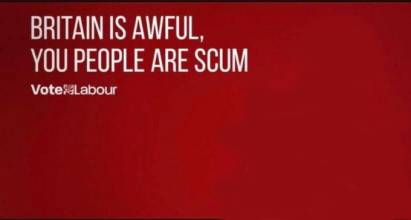'wasting time'
3 posters
Page 1 of 1
 'wasting time'
'wasting time'
The latest round of UN climate talks has made little progress, observers say.
The meeting in Bonn, Germany saw angry exchanges between rich nations, fast-industrialising ones and those prone to climate impacts.
Campaigners spoke of a "coalition of the unwilling" including the US, China, India and several Gulf states.
Developing countries are also concerned about the lack of firm pledges on finance beyond the end of this year.
This was the first negotiating meeting since last December's ministerial summit in Durban, South Africa.
The key outcome there was an agreement to begin talks leading to a new global deal involving all nations.
The "Durban Platform", as it is known, will see the agreement tied up by 2015 and coming into force by 2020.
Opening the Bonn session, UN climate convention (UNFCCC) executive secretary Christiana Figueres told negotiators that progress depended on ambition - "ambition to support developing countries, ambition to mobilise finance and... ambition to decisively and tangibly reduce emissions according to what science demands".
By the end, several observers including Tove Maria Ryding of Greenpeace International concluded that ambition had been largely absent.
"It's absurd to watch governments sit and point fingers and fight like little kids while the scientists explain about the terrifying impacts of climate change," she said.
Complex world
Continue reading the main story
“
Start Quote
Some of the world's largest emitters have wasted too much energy in trying to move backwards rather than in securing progress”
Connie Hedegaard
EU Climate Commissioner
While UN climate talks used to be characterised as a simple "rich versus poor" battle, the politics have become much more tangled in recent years.
At the Durban meeting, dozens of the world's poorest and most climate-vulnerable nations teamed up with the EU to press for a new global deal with legal character - which eventually found form in the Durban Platform.
The main opponents of the move included developing countries such as India and China, as well as rich ones such as the US.
This split within the developing world bloc led to a spat in Bonn that more than one experienced observer described as "unprecedented".
China's delegate Su Wei asked veteran Surinamese diplomat Robert van Lierop to step down as interim chair of the working group on the Durban Platform (ADP), alleging a possible conflict of interest.
Conventionally, chairs of all sessions are supposed to behave impartially - and questioning their capacity to do so is highly undiplomatic.
Mr Wei was backed by Saudi Arabia, Egypt and Kuwait. But Barbadian Selwin Hart described the move as "unprecedented and alarming... we have crossed a very unfortunate line".
Continue reading the main story
Climate change glossary
Select a term to learn more:
Adaptation
Adaptation
Action that helps cope with the effects of climate change - for example construction of barriers to protect against rising sea levels, or conversion to crops capable of surviving high temperatures and drought.
Glossary in full
The Alliance of Small Island States (Aosis), with which Mr van Lierop is associated, is adamant that the ADP must work on curbing emissions before 2015; and Mr Wei's intervention was interpreted in some quarters as a slap to Aosis.
China and the oil-producing states fear the breaching of the "firewall" between the traditional developed and developing worlds.
They fear this will help developed countries make the case that fast-industrialising nations such as China should face emissions cuts before too long.
In turn, China points to the repeated failure of rich countries to cut their emissions as far as mainstream science indicates they should - particularly those such as the US, Japan, Russia and Canada that have opted not to take further emission cuts under the Kyoto Protocol.
"Both sides are right," said Alden Meyer from the Union of Concerned Scientists.
"The US and Japan and Russia aren't taking their responsibilities seriously; yet the developed countries are right in that you can't rebuild the firewall and pretend that the future for China is the same as the future for Bangladesh," he told BBC News.
The agenda for ADP negotiations was finally adopted. But there was little progress on another key issue - agreeing the terms under which the EU, and possibly other developed nations, will put their emission cuts under the Kyoto Protocol.
Funding hiatus
Three years ago, developed countries pledged that by 2020 they would be providing $100bn per year for poor nations, to help them "green" their economies and prepare for impacts of climate change.
For the period 2009-12, they are provided $10bn per year in "fast-start finance".
Christiana Figueres asked for "ambition" - but many said the talks were bogged down in "process"
But that agreement comes to an end in December, and no developed nation has yet indicated what happens afterwards.
"No progress was made to deliver the financial support that the world's poorest and most vulnerable need to deal with the growing impacts of climate change," said Celine Charveriat, Oxfam advocacy and campaigns director.
"It is now vital that, at the next UN climate summit in Qatar in November, rich countries commit to an initial $10-15bn... between 2013 and 2015."
EU climate commissioner Connie Hedegaard complained that the meeting had discussed process rather than substance.
"This week, the International Energy Agency (IEA) has reported that global emissions have reached their highest ever level," she said.
"At the same time, in Bonn, some of the world's largest emitters have wasted too much energy in trying to move backwards rather than in securing progress.
"This is not just irresponsible; it is untenable for a UNFCCC process that wants to remain relevant."
While the coalition between the EU and its developing country allies appears to have held, the climate-vulnerable nations are not happy about the EU's repeated failure to pledge tighter emission cuts.
It appears that Poland is the only EU nation holding things up - and there are indications that German Chancellor Angela Merkel will wield her country's considerable diplomatic muscle at the EU Council meeting next month.
Meanwhile, the UNFCCC process is likely to include an extra meeting this year, probably in Bangkok, though the funds are not yet in place.
Follow Richard on Twitter
http://www.bbc.co.uk/news/science-environment-18210642
The meeting in Bonn, Germany saw angry exchanges between rich nations, fast-industrialising ones and those prone to climate impacts.
Campaigners spoke of a "coalition of the unwilling" including the US, China, India and several Gulf states.
Developing countries are also concerned about the lack of firm pledges on finance beyond the end of this year.
This was the first negotiating meeting since last December's ministerial summit in Durban, South Africa.
The key outcome there was an agreement to begin talks leading to a new global deal involving all nations.
The "Durban Platform", as it is known, will see the agreement tied up by 2015 and coming into force by 2020.
Opening the Bonn session, UN climate convention (UNFCCC) executive secretary Christiana Figueres told negotiators that progress depended on ambition - "ambition to support developing countries, ambition to mobilise finance and... ambition to decisively and tangibly reduce emissions according to what science demands".
By the end, several observers including Tove Maria Ryding of Greenpeace International concluded that ambition had been largely absent.
"It's absurd to watch governments sit and point fingers and fight like little kids while the scientists explain about the terrifying impacts of climate change," she said.
Complex world
Continue reading the main story
“
Start Quote
Some of the world's largest emitters have wasted too much energy in trying to move backwards rather than in securing progress”
Connie Hedegaard
EU Climate Commissioner
While UN climate talks used to be characterised as a simple "rich versus poor" battle, the politics have become much more tangled in recent years.
At the Durban meeting, dozens of the world's poorest and most climate-vulnerable nations teamed up with the EU to press for a new global deal with legal character - which eventually found form in the Durban Platform.
The main opponents of the move included developing countries such as India and China, as well as rich ones such as the US.
This split within the developing world bloc led to a spat in Bonn that more than one experienced observer described as "unprecedented".
China's delegate Su Wei asked veteran Surinamese diplomat Robert van Lierop to step down as interim chair of the working group on the Durban Platform (ADP), alleging a possible conflict of interest.
Conventionally, chairs of all sessions are supposed to behave impartially - and questioning their capacity to do so is highly undiplomatic.
Mr Wei was backed by Saudi Arabia, Egypt and Kuwait. But Barbadian Selwin Hart described the move as "unprecedented and alarming... we have crossed a very unfortunate line".
Continue reading the main story
Climate change glossary
Select a term to learn more:
Adaptation
Adaptation
Action that helps cope with the effects of climate change - for example construction of barriers to protect against rising sea levels, or conversion to crops capable of surviving high temperatures and drought.
Glossary in full
The Alliance of Small Island States (Aosis), with which Mr van Lierop is associated, is adamant that the ADP must work on curbing emissions before 2015; and Mr Wei's intervention was interpreted in some quarters as a slap to Aosis.
China and the oil-producing states fear the breaching of the "firewall" between the traditional developed and developing worlds.
They fear this will help developed countries make the case that fast-industrialising nations such as China should face emissions cuts before too long.
In turn, China points to the repeated failure of rich countries to cut their emissions as far as mainstream science indicates they should - particularly those such as the US, Japan, Russia and Canada that have opted not to take further emission cuts under the Kyoto Protocol.
"Both sides are right," said Alden Meyer from the Union of Concerned Scientists.
"The US and Japan and Russia aren't taking their responsibilities seriously; yet the developed countries are right in that you can't rebuild the firewall and pretend that the future for China is the same as the future for Bangladesh," he told BBC News.
The agenda for ADP negotiations was finally adopted. But there was little progress on another key issue - agreeing the terms under which the EU, and possibly other developed nations, will put their emission cuts under the Kyoto Protocol.
Funding hiatus
Three years ago, developed countries pledged that by 2020 they would be providing $100bn per year for poor nations, to help them "green" their economies and prepare for impacts of climate change.
For the period 2009-12, they are provided $10bn per year in "fast-start finance".
Christiana Figueres asked for "ambition" - but many said the talks were bogged down in "process"
But that agreement comes to an end in December, and no developed nation has yet indicated what happens afterwards.
"No progress was made to deliver the financial support that the world's poorest and most vulnerable need to deal with the growing impacts of climate change," said Celine Charveriat, Oxfam advocacy and campaigns director.
"It is now vital that, at the next UN climate summit in Qatar in November, rich countries commit to an initial $10-15bn... between 2013 and 2015."
EU climate commissioner Connie Hedegaard complained that the meeting had discussed process rather than substance.
"This week, the International Energy Agency (IEA) has reported that global emissions have reached their highest ever level," she said.
"At the same time, in Bonn, some of the world's largest emitters have wasted too much energy in trying to move backwards rather than in securing progress.
"This is not just irresponsible; it is untenable for a UNFCCC process that wants to remain relevant."
While the coalition between the EU and its developing country allies appears to have held, the climate-vulnerable nations are not happy about the EU's repeated failure to pledge tighter emission cuts.
It appears that Poland is the only EU nation holding things up - and there are indications that German Chancellor Angela Merkel will wield her country's considerable diplomatic muscle at the EU Council meeting next month.
Meanwhile, the UNFCCC process is likely to include an extra meeting this year, probably in Bangkok, though the funds are not yet in place.
Follow Richard on Twitter
http://www.bbc.co.uk/news/science-environment-18210642

wyatt1- ..........

- Posts : 10029
 Re: 'wasting time'
Re: 'wasting time'
I wouldn't worry as its a con to tax us.
I would also add out contribution to this is pathetic. China are building 74 international airports the size of heathrow.
I would also add out contribution to this is pathetic. China are building 74 international airports the size of heathrow.

Durham- ..........

- Posts : 10560
 Re: 'wasting time'
Re: 'wasting time'
Durham wrote:I wouldn't worry as its a con to tax us.
I would also add out contribution to this is pathetic. China are building 74 international airports the size of heathrow.
Just as I thought.


wyatt1- ..........

- Posts : 10029
 Re: 'wasting time'
Re: 'wasting time'
wyatt1 wrote:
Just as I thought.
You cannot have an economy if you cannot make things and distribute them. Both takes energy and until they develop a solar panel big enough to power a plane - just forget it.
It's humans being arrogant thinking they've caused it and then they can change it. Neither of which is true

Durham- ..........

- Posts : 10560
 Re: 'wasting time'
Re: 'wasting time'
lets not forget that these people turn up in tehir private jets and chauffeur driven limo's and then talk about cuts in CO2.
the irony seems to be lost on them.
the irony seems to be lost on them.
 Re: 'wasting time'
Re: 'wasting time'
Flap Meister wrote:lets not forget that these people turn up in tehir private jets and chauffeur driven limo's and then talk about cuts in CO2.
the irony seems to be lost on them.
Do as I say, not as I do. again!

wyatt1- ..........

- Posts : 10029
 Similar topics
Similar topics» THE time-wasting ballboy given a kicking on TV by Chelsea ace Eden Hazard was in hiding last night after death threats from Blues thugs.
» Cyndi Lauper - time after time
» About Time
» Time
» Once Upon A Time!
» Cyndi Lauper - time after time
» About Time
» Time
» Once Upon A Time!
Page 1 of 1
Permissions in this forum:
You cannot reply to topics in this forum


» Pork Markets
» Why Elon Musk Couldn't Save Free Speech
» so..............hows the freedom jab going??
» NOT GUILTY ON ALL COUNTS
» DEAN!!!!!
» Scams becoming more sophisticated
» An Interesting Tweet
» Have you seen...
» tories prepare for genocide
» PLANET OF THE HUMANS
» Blood is on bidens hands
» A list of joe Bidens accomplishments during his 47 years in politics
» Mickey Mouse has ruined my life
» Turkish Wildfires